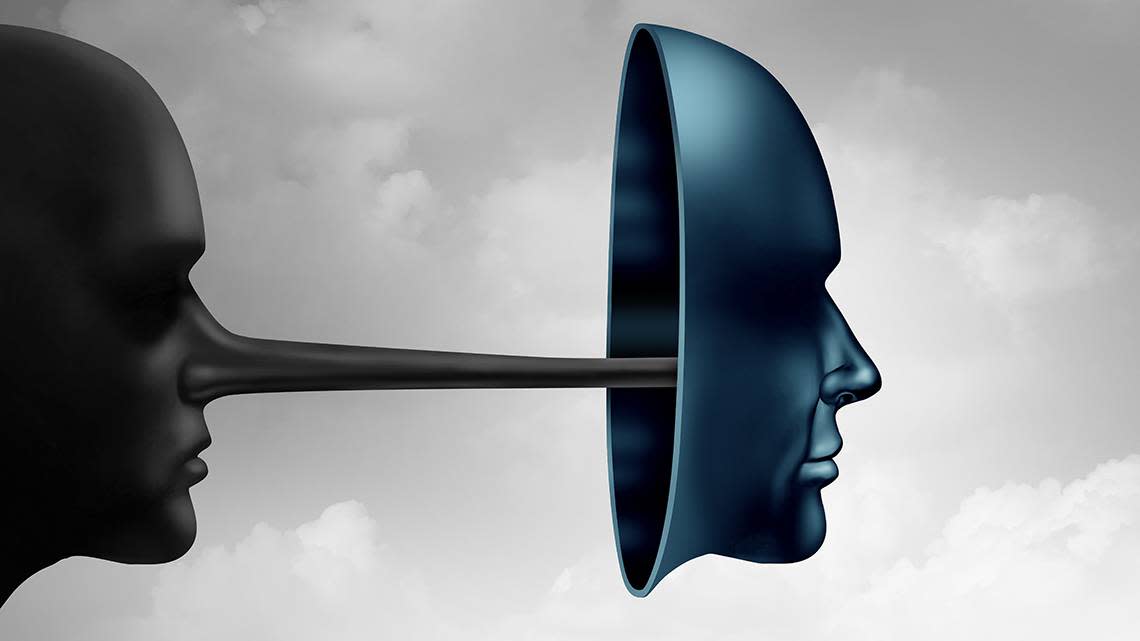Missouri’s anti-deepfake legislation is a good step. But is it too little, too late? | Opinion

It seems like it took a while, but one of the Missouri bills criminalizing artificial intelligence deepfakes made it through the House and it’s on to the Senate. About time.
I wrote about H.B. 2628 weeks ago, and questioned whether its financial and criminal penalties — its teeth — were strong enough.
This bill focuses on those who create false political communication, like when a robocall on Election Day featured a fake President Joe Biden telling people to stay away from the New Hampshire polls. A second Missouri House bill, H.B. 2573, also tackles deepfakes, but focuses on creating intimate digital depictions of people — porn — without their consent.
It is still winding its way through the House. That bill, called the Taylor Swift Act, likely will get even more attention because of its celebrity name and lurid photo and video clones.
But H.B. 2628 may be even more important because digital fakers have the potential to change the course of an election and, dare I say, democracy itself. It passed, overwhelmingly but not unanimously — 133 to 5, with 24 absent or voting present. It was sent on to the Senate floor where it had its first reading.
When I first heard about the bills earlier this year I wrote that they were needed. Its sponsor, state Rep. Ben Baker, a Newton County Republican, told me that the bill is important, especially in elections, because “the ability with AI technology to now produce a deepfake video or audio production is extremely easy and inexpensive. The deepfake media is difficult to recognize even to the trained eye in many cases.”
He’s right. The tech is amazing, but dangerous. We need to rein it in.
But is H.B. 2628 enough? I talked to some supporters of the bill to find out why they believe it is.
Denise Lieberman, director and general counsel of the Missouri Voter Protection Coalition and Jonah Minkoff-Zern co-director of Public Citizen’s Democracy Campaign both submitted testimony in support of the bill.
Lieberman said the Missouri Voter Protection Coalition has seen “a dramatic uptick in online disinformation here in Missouri related to elections … both misinformation and disinformation.”
Pro-stadium postcard real-world disinformation
One recent example was both digital and old-school: a postcard from a pro city-center baseball stadium coalition that was mailed to homes and was shared on social media.
“Don’t let the radical left take the Chiefs from us,” the mailer said, alongside a picture of some Black protesters with KC Tenants. The tenants union opposed Question 1, a ballot measure that would issue a 40-year, 3/8-cent sales tax to help pay for a new Royals stadium in the Crossroads and renovations to the Chiefs’ Arrowhead Stadium. That measure failed.
The coalition behind the mailer was a group called Cornerstone 1791, a nonprofit that owns conservative Liberty Alliance USA, formed to fight “the reckless embrace of socialism in Missouri,” its website states.
The mailer is another form of media that the bill wants to fight. It was designed to imply that KC Tenants wanted to take away the Chiefs, a hot-button talking point.
But what are some other AI-facilitated examples of disinformation? Lieberman listed some examples of disinformation that she called insidious:
“In some counties … people are being told that the polls close at five o’clock instead of seven o’clock. So, If you haven’t left work yet, don’t bother – the polling place is closed. That sort of thing gets amplified online.”
Others include rumors circulated online that police will check everyone’s driver’s license plates and give tickets if you have outstanding traffic tickets.
And another Lieberman said has been reported at the polls: “ ‘My driver’s license doesn’t have my current address on it. They said I can’t vote.’ But that’s not required. It doesn’t have to have your current address,” she said.
Lieberman said advances in technology that have made disinformation proliferate will increase the likelihood that voters will receive inaccurate information or be dissuaded from participating.
From a national and global perspective, Minkoff-Zern of Public Citizen called the issue urgent. He noted that Estonia and Argentina are two examples where the outcome of elections may very well have been influenced and changed because of AI deepfake videos.
‘Ffantastic that it’s moving forward so quickly’
Closer to home, he mentioned the well-known case of Biden’s fake robocall in New Hampshire, but also a recent congressional election in North Carolina where deepfake video was circulated.
“We see this is really a problem that needs to be nipped in the bud right away, so legislation like Missouri’s that both criminalizes and provides civil remedies, … it is fantastic that it’s moving forward so quickly,” said Minkoff-Zern.
“We worked very closely with Public Citizen on the drafting of the language for the legislation and in particular reaching out to Ben Baker to work on getting that legislation introduced,” Lieberman said.
Back to my original question, though: Is the bill tough enough? Are the penalties severe enough? Minkoff-Zern said stopping and removing the offending deepfake material is most important.
“I think the bill is a good bill because it provides the ability to stop people,” he said. “The opportunity for an injunction is absolutely essential.”
As far as the financial penalties are concerned, they aren’t perfect, but it’s something, Minkoff-Zern said. “We have to set up these laws also on a federal level to act. And then, modify them if we see them as insufficient.”
The law doesn’t have much time to wind its way through the Missouri Senate — the session ends May 17 with a veto session to follow in September. In a perfect world, we’d have it in place before the November election. Can you imagine the deepfakes to come?

